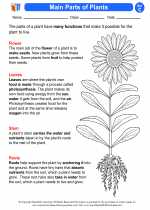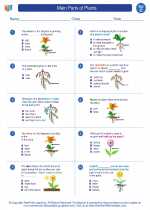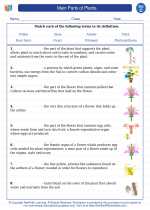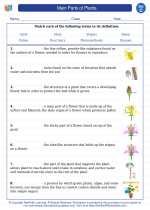Molecular Biology
Molecular biology is the branch of biology that focuses on the study of the structure, function, and interactions of the molecules that are essential for life. This field delves into the molecular basis of biological activity within cells, including the interactions between DNA, RNA, proteins, and other biomolecules.
Study Guide for Molecular Biology
1. DNA Structure and Function
Understand the structure of DNA, including the double helix, nucleotides, and base pairing. Learn about the role of DNA in storing genetic information and its functions in replication, transcription, and translation.
2. RNA and Protein Synthesis
Explore the different types of RNA (mRNA, tRNA, and rRNA) and their roles in protein synthesis. Understand the processes of transcription and translation, and how genetic information is transferred from DNA to RNA to protein.
3. Genetic Mutations
Learn about different types of genetic mutations, including point mutations, insertions, deletions, and chromosomal aberrations. Understand the potential impacts of mutations on protein structure and function.
4. Gene Regulation
Understand the mechanisms of gene regulation, including the role of transcription factors, epigenetic modifications, and environmental influences on gene expression.
5. Recombinant DNA Technology
Explore the principles of recombinant DNA technology, including gene cloning, polymerase chain reaction (PCR), and genetic engineering techniques. Understand the applications of recombinant DNA technology in various fields.
6. DNA Replication and Repair
Learn about the process of DNA replication, including the enzymes involved and the mechanisms that ensure accuracy. Understand the different types of DNA repair mechanisms and their importance in maintaining genomic integrity.
By mastering these key concepts in molecular biology, you will gain a solid foundation in understanding the molecular mechanisms that underlie the functions of living organisms.
.◂Science Worksheets and Study Guides Third Grade. Main Parts of Plants

 Activity Lesson
Activity Lesson
 Worksheet/Answer key
Worksheet/Answer key
 Worksheet/Answer key
Worksheet/Answer key
 Worksheet/Answer key
Worksheet/Answer key
 Worksheet/Answer key
Worksheet/Answer key
 Worksheet/Answer key
Worksheet/Answer key
 Vocabulary/Answer key
Vocabulary/Answer key
 Vocabulary/Answer key
Vocabulary/Answer key
